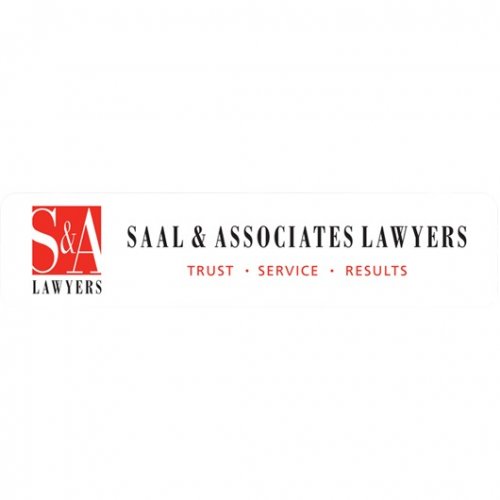Best Sanctions & Export Controls Lawyers in Brisbane
Share your needs with us, get contacted by law firms.
Free. Takes 2 min.
List of the best lawyers in Brisbane, Australia
About Sanctions & Export Controls Law in Brisbane, Australia
Sanctions and export controls law refers to a set of regulations that govern the trade, transport, and transfer of goods, services, and technology across international borders. In Brisbane, Australia, these laws are designed to ensure national security, comply with international obligations, and uphold the government’s foreign policy. The regulations cover not only what goods and services can be exported but also to which countries and under what conditions. Certain exports are either restricted or prohibited to prevent contributing to activities that may undermine international peace or breach United Nations Security Council sanctions.
Why You May Need a Lawyer
Legal advice in sanctions and export controls may be necessary in various situations, including:
- Exporting goods, software, technology, or services from Brisbane to overseas markets
- Dealing with clients, supply chains, or subsidiaries in countries subject to sanctions or embargoes
- Establishing or operating an import-export business
- Facing government audits or investigations into export practices or international transactions
- Preparing internal compliance programs to manage risks associated with international trade
- Responding to penalties, fines, or enforcement notices from regulatory agencies
- Understanding or navigating changes in Australian or international sanctions regimes
A lawyer with experience in these areas can help you understand your obligations, keep your business compliant, minimize legal risk, and respond effectively if issues arise.
Local Laws Overview
In Brisbane, as in all of Australia, sanctions and export controls are primarily governed by federal laws that are administered by Commonwealth agencies, with some aspects intersecting with state regulations. The most relevant federal legislation includes the Autonomous Sanctions Act 2011 and the Customs Act 1901. The Department of Foreign Affairs and Trade (DFAT) administers sanctions regulations, while the Australian Border Force (ABF) enforces controls over physical exports and imports.
Key aspects of the legal framework in Brisbane include:
- Autonomous sanctions and UN sanctions apply throughout Australia, including Brisbane, and restrict dealings with certain countries, individuals, and entities.
- Export controls cover specific goods and technology classified as “controlled” such as military and dual-use items, requiring permits before exportation.
- Sanctions laws have extraterritorial applications, meaning Brisbane-based businesses or individuals can be liable for breaches even when operating overseas or online.
- There are criminal and civil penalties for non-compliance, including substantial fines and imprisonment.
- Local businesses and residents must remain updated as regulations change frequently in response to international developments.
Frequently Asked Questions
What are economic sanctions and why do they exist?
Economic sanctions are legal measures imposed by the Australian government, often in coordination with the United Nations, to restrict trade or financial transactions with particular countries or entities to advance national security or foreign policy objectives.
Who administers and enforces sanctions in Brisbane, Australia?
Sanctions are administered by the Department of Foreign Affairs and Trade (DFAT), while customs enforcement falls under the Australian Border Force (ABF).
Which exports are restricted or controlled?
Exports controlled include military goods, civilian items with potential military use (dual-use items), certain chemicals, software, technology and cultural heritage items. These are detailed on the Defence and Strategic Goods List (DSGL).
Do I need a permit to export goods from Brisbane?
You may need a permit to export controlled goods, technology, or services. This requirement applies regardless of whether the export is physical or electronic.
Can individuals and small businesses be held liable for sanctions breaches?
Yes, both individuals and businesses, regardless of size, can be prosecuted for violating sanctions or export control laws.
Can I send money or provide services to someone in a sanctioned country?
Generally, sending money or services to designated sanctioned countries or individuals is prohibited unless a specific exemption or permit is granted.
What should I do if I receive a letter from regulators about my export activity?
You should consult a lawyer immediately to understand your rights, obligations, and how to respond appropriately to the regulators.
How can I determine if my product is subject to export controls?
You can consult the Defence and Strategic Goods List (DSGL) and seek legal guidance to interpret how the list applies to your products and services.
Are there reporting obligations for attempted or failed exports?
Yes, in some cases you must report attempted exports of controlled goods, especially if they involve sanctioned destinations or parties.
What penalties apply for violations of sanctions and export control laws?
Penalties can include heavy fines, loss of export privileges, and even imprisonment depending on the severity of the breach.
Additional Resources
If you need further information or assistance, the following resources and organizations can be useful:
- Department of Foreign Affairs and Trade (DFAT) - for up-to-date sanctions lists and permit applications
- Australian Border Force (ABF) - for guidance on customs, border control, and enforcement
- Australian Sanctions Office (ASO) - a part of DFAT handling sanctions compliance queries
- Defence Export Control Office (DECO) - provides advice and processes export permits for controlled goods
- The Queensland Law Society - can help find qualified sanctions and export controls legal specialists in Brisbane
Next Steps
If you require legal advice or believe you are affected by Australian sanctions or export controls law in Brisbane, consider these steps:
- Gather any relevant information about your goods, services, or transactions, including parties, destinations, and methods of transfer
- Check whether your activities are covered by the current sanctions lists or the Defence and Strategic Goods List
- Contact a qualified Brisbane sanctions and export controls lawyer for a confidential review of your situation
- Do not respond to regulatory notices or requests without seeking legal advice, as this could impact your legal position
- Develop or update your internal compliance protocols to minimize risks and ensure ongoing compliance
Being proactive and seeking proper legal counsel ensures you comply with all obligations and reduces the risk of penalties or business disruption related to sanctions and export controls in Brisbane, Australia.
Lawzana helps you find the best lawyers and law firms in Brisbane through a curated and pre-screened list of qualified legal professionals. Our platform offers rankings and detailed profiles of attorneys and law firms, allowing you to compare based on practice areas, including Sanctions & Export Controls, experience, and client feedback.
Each profile includes a description of the firm's areas of practice, client reviews, team members and partners, year of establishment, spoken languages, office locations, contact information, social media presence, and any published articles or resources. Most firms on our platform speak English and are experienced in both local and international legal matters.
Get a quote from top-rated law firms in Brisbane, Australia — quickly, securely, and without unnecessary hassle.
Disclaimer:
The information provided on this page is for general informational purposes only and does not constitute legal advice. While we strive to ensure the accuracy and relevance of the content, legal information may change over time, and interpretations of the law can vary. You should always consult with a qualified legal professional for advice specific to your situation.
We disclaim all liability for actions taken or not taken based on the content of this page. If you believe any information is incorrect or outdated, please contact us, and we will review and update it where appropriate.

















